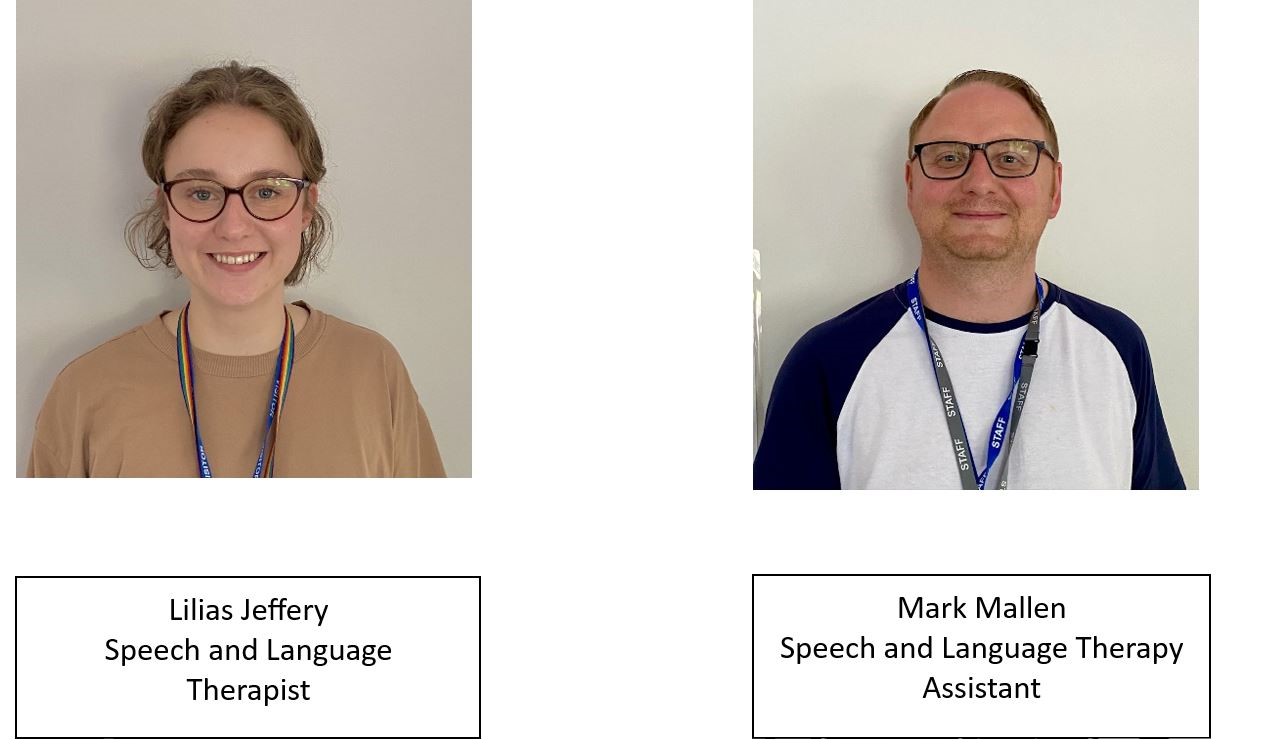Speech and Language Therapy (SaLT) at Queensbury School
The SaLT service at Queensbury school is delivered by WMSLT, and works in collaboration with staff, parents and other external agencies to support students with communication needs. We are working closely with school staff to ensure the classroom environment supports the communication needs of all students.
What is Speech and Language Therapy?
Speech and Language Therapists work with children and young people to support the development of their understanding of language (receptive language) and communicating (expressive language). How people communicate looks different for everyone – some people verbally communicate; some people need a form of Augmentative and Alternative Communication (AAC).
How can your child be supported by speech and language therapy at Queensbury?
We provide a speech and language therapy service to school at 3 different levels: universal, targeted and specialist.
Universal Support
The aim of this level of service is to enable school staff to provide a ‘communication friendly’ classroom environment. Every child within school will benefit from this level of service. The service might include:
- Whole staff CPD training around supporting different communication needs.
- Giving advice to school staff to adapt the classroom environment, making sure we are working towards a Total Communication approach across the setting.
Targeted Support
This is support provided over and above universal support, specifically for those with children with Speech, Language, and Communication Needs (SLCN). This might include supporting school staff to complete a screening assessment and providing recognised SLCN interventions. Many students benefit from this service in school. Targeted interventions can be focused around the following areas:
- Beginning to have longer attention spans to activities, sharing and sustaining enjoyment for an activity with an adult or another student.
- Building vocabulary knowledge of words across the curriculum and other important areas of the student’s life. We want them to become independent with their word learning.
- Developing language to reason with someone, justify someone’s actions and solve people’s problems.
- Using language to ask for specific help.
- Giving young people the emotional vocabulary to express exactly how they feel, helping them regulate any big feelings.
- Building spoken language skills so the young person can communicate their thoughts in well-ordered sentences and tell stories through clear narratives.
- Preparing them for the workplace by teaching communication skills needed for employment.
Specialist Support
A child or young person with needs that cannot be met at a universal and targeted level, will be offered a specialist service. A child or young person may also receive a specialist service to provide support to the family or involvement in EHCP reviews. A smaller number of students will access this level of service. This may include:
- Individual assessment and intervention for speech sound difficulties, helping the young person articulate their sentences more effectively
- Helping a young person who stammers to feel more confident in managing their stammer and build knowledge and resilience about their communication difference.
- Establishing a preferred form of AAC (Augmentative and Alternative Communication). This is done in liaison with teaching staff and family at home. There are many different types of AAC, including Makaton, a communication book, or a high-tech electronic device.
- Supporting a young person who has Selective Mutism.
The SaLT service seeks parental consent when we are going to be working with students individually, but also when we are overseeing a communication intervention which is being led by a trained member of staff in school; one of our Communication Champions. So, not every referral means your child will be directly seen by a Speech and Language Therapist. Your child might benefit from this help now or in the future, and we will decide on the best support based on your child’s specific profile.

